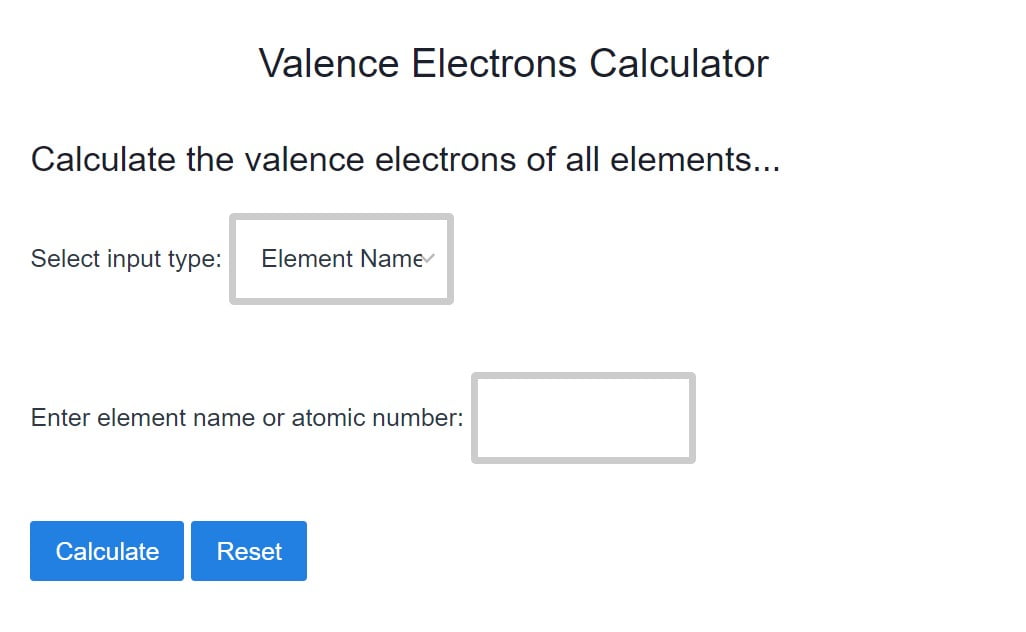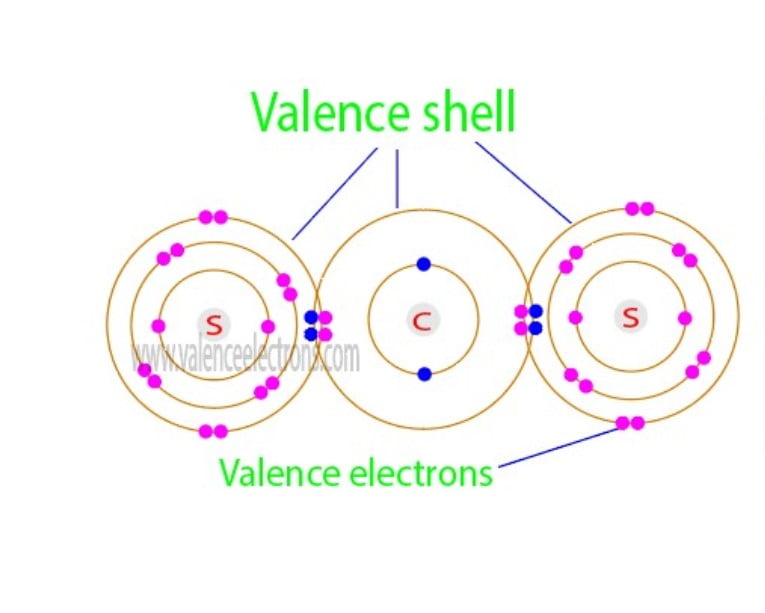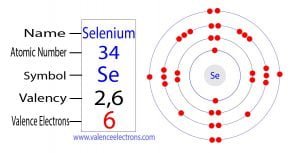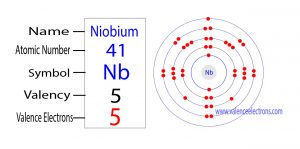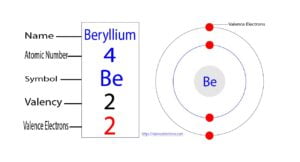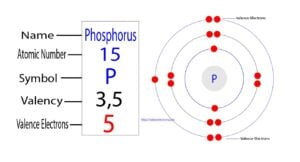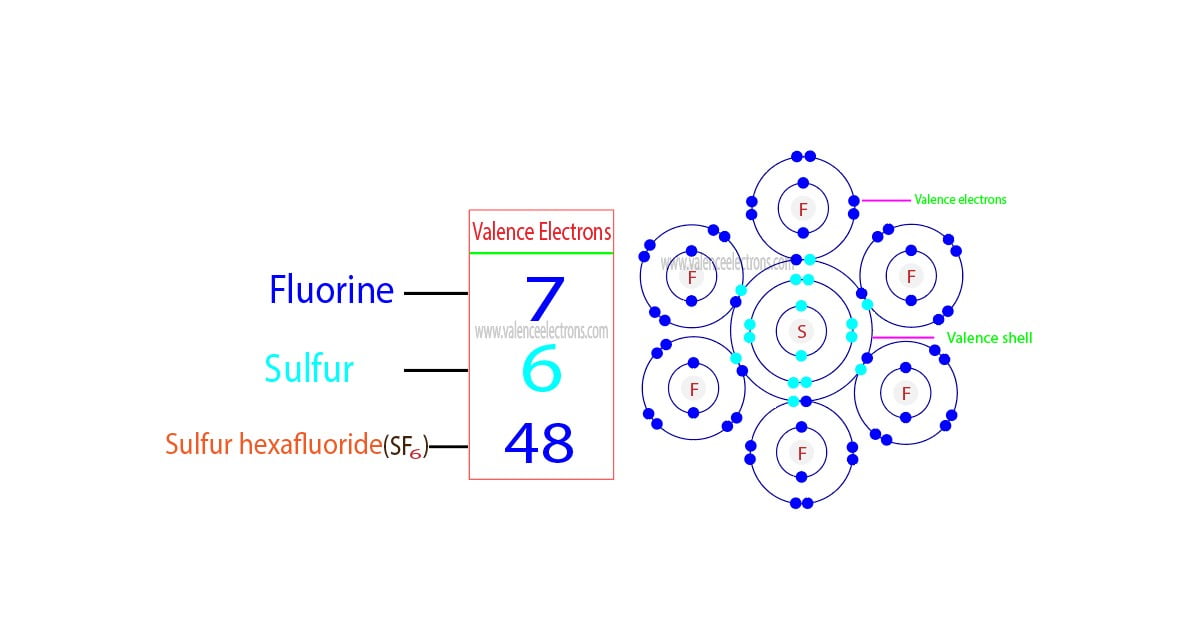How to Find the Valence Electrons for Hydrogen Cyanide?
The total number of electrons in the last orbit of an element is called the valence electrons of that element. Two or more elements combine to form compounds.
The valence electrons of a compound are the sum of the total valence electrons of each element in that compound. Hydrogen cyanide is composed of three elements. One is hydrogen, and the other two elements are carbon and nitrogen.
The valence electrons of hydrogen cyanide are the sum of the total valence electrons of hydrogen, carbon, and nitrogen in the compound HCN.
The hydrogen cyanide compound has a total of ten electrons in the last orbits of hydrogen, carbon, and nitrogen.
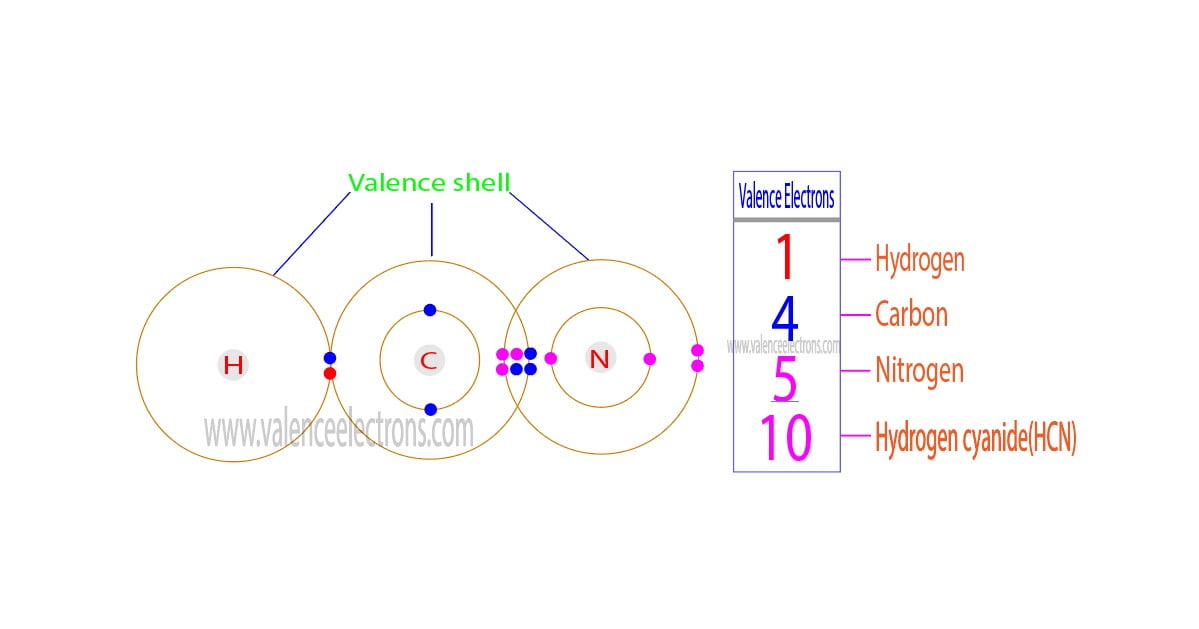
Hence, the total number of valence electrons in hydrogen cyanide is ten. To determine the valence electrons of a compound, the number of valence electrons in each element of the compound must be known.
This article discusses in detail how to determine the valence electrons of hydrogen cyanide very easily. Hopefully, after reading this article you will know more about this topic.
How to easily determine the number of valence electrons of HCN?
The symbol form of hydrogen cyanide is HCN. To determine the valence electrons of HCN, it is first necessary to know the valence electrons of the nitrogen, carbon, and hydrogen atoms.
To determine the valence electrons of hydrogen cyanide we have to follow two steps. It is shown below:
Step 1: Determine the valence electrons of hydrogen, carbon, and nitrogen atoms
The atomic number of hydrogen is 1. So its total number of electrons is one. The electron configuration of hydrogen shows that it has one electron in its last orbit.
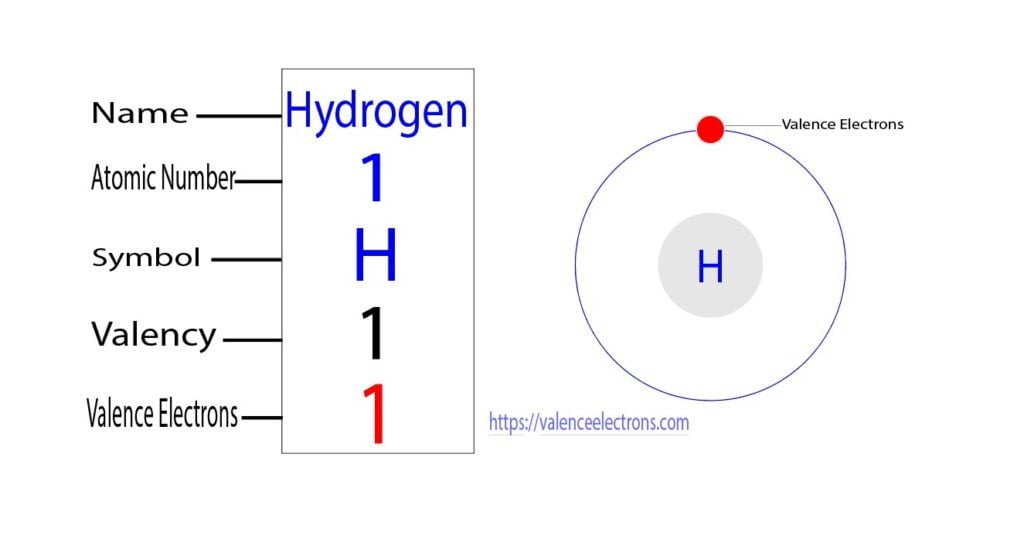
We already know that the electrons in the last orbit of an element are the valence electrons of that element. Therefore, the valence electrons of hydrogen are one.
On the other hand, the atomic number of carbon is 6. So its total number of electrons is six.
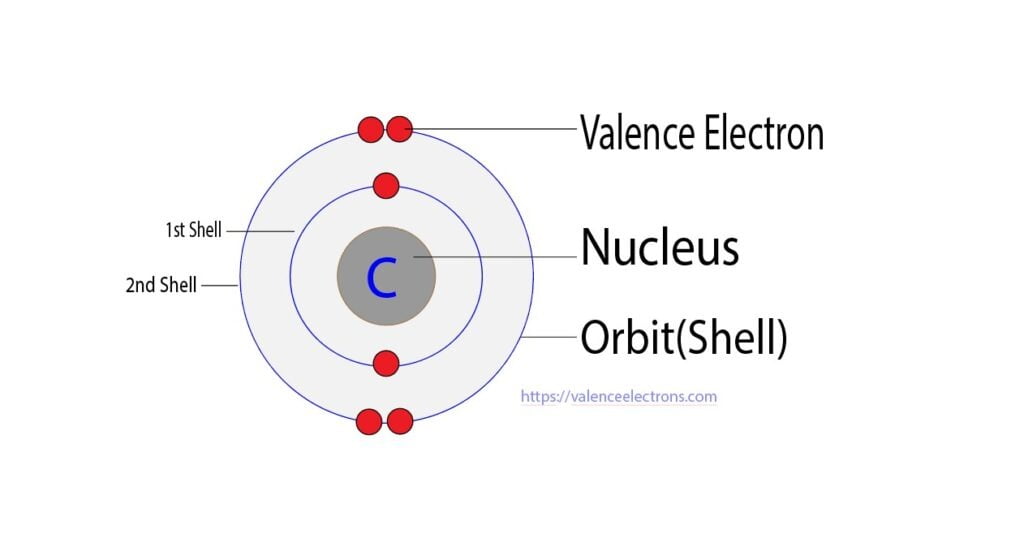
The electron configuration of carbon shows that it has four electrons in its last orbit. Therefore, the valence electrons of carbon are four. Again, the atomic number of nitrogen is 7. So its total number of electrons is seven.
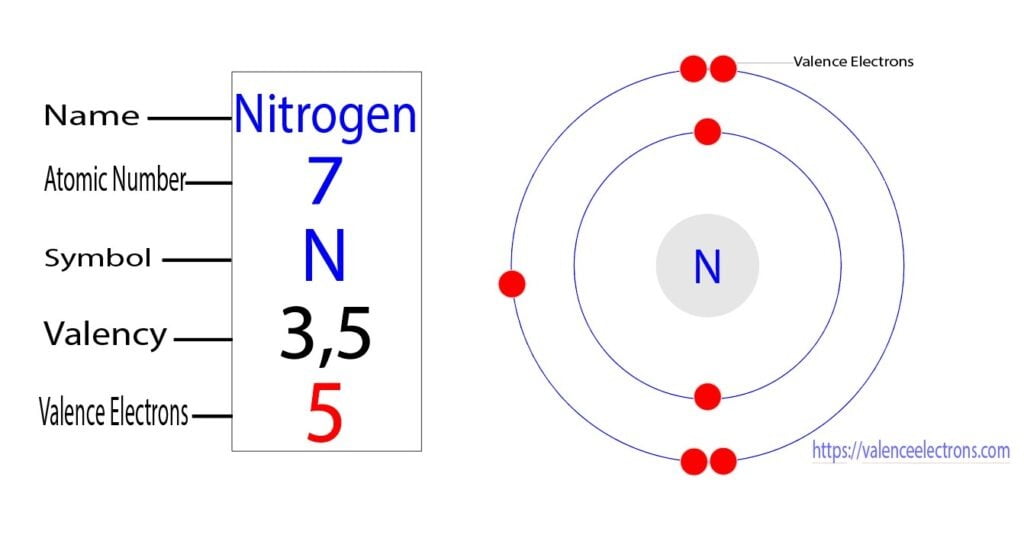
The electron configuration of nitrogen shows that it has five electrons in its last orbit. Therefore, the valence electrons of nitrogen are five.
Step 2: Determine the total number of valence electrons in the hydrogen cyanide compound
Hydrogen cyanide is a compound. It is composed of one hydrogen atom, one carbon atom, and one nitrogen atom.
Therefore, adding the valence electrons of one hydrogen atom, one carbon atom, and one nitrogen atom can easily determine the valence electrons of hydrogen cyanide.
Mathematical Analysis:
HCN
= 1 + 4 + 5
= 10
| Hydrogen (H) | Carbon (C) | Nitrogen (N) | Hydrogen cyanide (HCN) |
| 1 | 4 | 5 | 10 |
From the above mathematical analysis, we can see that the total number of electrons in the outermost orbit of hydrogen cyanide is ten. Therefore, the valence electrons of hydrogen cyanide are ten.
Video for Valance Electrons for HCN: Hydrogen Cyanide
Why do you need to know the valence electrons of an element?
In addition to knowing the number of electrons of an element, it is also necessary to know the number of valence electrons of that element. The number of valence electrons of an element carries important properties of that element.
Many important properties of elements and compounds can be determined by valence electrons. Some important features are mentioned below:
- Determining the element’s position in the periodic table
- Determining the number of groups of elements in the periodic table
- Determining Valency
- Lewis dot formation
- Determination of the molecular structure of the compound
- Determination of bond pairs and non-pair electrons of compounds
Valence electrons are related to the characteristics of a compound. So we need to know the valence electrons of all the elements to determine the properties of compounds.
